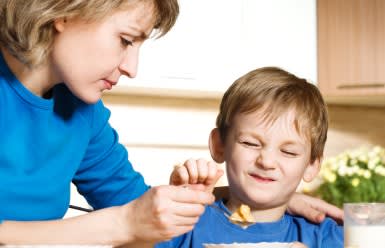In this week’s Parsha, Shelach, a tremendous amount of turmoil is caused by Lashon Harah, negative language. The Jewish people are getting ready to enter the Promised Land and Moshe sends 12 spies to scout out the Land of Israel. Ten of the spies returned from their trip with extraordinarily large clusters of grapes, pomegranates and figs and only bad things to say about the Land of Israel. Only two spies, Caleb and Joshua, refused to speak Lashon Hara. They maintained their faith in G-d and did not join the other spies in speaking badly about Israel.
Caleb and Joshua’s attempts to lead Klal Yisroel in the right direction fell on deaf ears and as a result of this Lashon Hara and lack of faith in G-d, the Jewish people were condemned to wander 40 years in the desert.
So many times we say things that we shouldn’t say, not only on a community level but in our homes. It is hard to remember that negative words have so much power. It is even harder to remember that positive words have even greater power.
As parents we have a tendency to focus on our kids negative behaviors instead of their positive ones. This is unfortunate because the more we focus on our child’s negative behavior the more we inadvertently reinforce their negative behavior.
This is especially true, when we try to foster responsible behavior in our children. Kids are irresponsible by nature and it can be difficult for parents to “force” their kids to be responsible. Parents will often complain and talk badly about their children:
“She never does her homework.”
“He doesn’t put his laundry in the hamper.”
“She is late for school.”
“He shirks his chores.”
As parents we need to think more positively about our kids behavior and have faith in their innate goodness. When we want to foster responsibility it is more helpful if we ask ourselves, “Is there ever a time where my child is responsible?”
This is a tough question for parents to answer, but if we push a bit, Something, anything, it does not have to be anything big, we might be able to say:
“She likes to soothe her sister when she cries.”
“He is careful when he helps me out in the garage when we work on my car.”
“She loves to vacuum and will do that anytime I ask.”
“Once his friend Michael was in the hospital and Michael’s Mom asked my son if he could get him the homework that he missed. He called him every night until Michael was better.
Once we are able to focus on our kid’s positive behavior, we can see that there are times where they actually exhibit responsible behaviors. This can give us clues as to how to foster more responsible behavior in our kids and how build on things that our kids already like to do.
If our child is good with little kids, we can help them get a job as a mother’s helper, which helps build responsibility. If he likes to tinker with mechanics you can give him some more responsibility when you are working on your car, or fixing any other appliance in the house. If she loves to vacuum, then that can be her job.
Lets use this Shabbos to focus on our child’s positive behaviors and use positive speech to encourage our kids to be responsible.
For more parenting tips and advice please see Answering the Tough Questions: Parenting Experts Weigh In in Jewish Action.
Adina Soclof, MS. CCC-SLP, works as a Parent Educator for Bellefaire Jewish Children’s Bureau facilitating How to Talk so Kids will Listen and Listen so Kids will Talk workshops as well as workshops based on Siblings Without Rivalry. Adina also runs parentingsimply.com.
The words of this author reflect his/her own opinions and do not necessarily represent the official position of the Orthodox Union.

